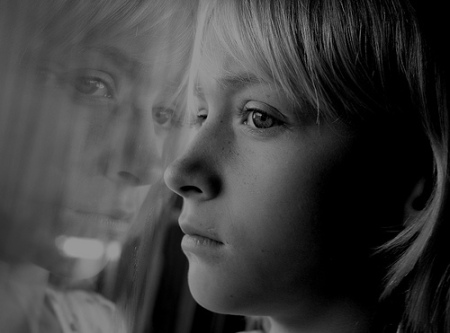Ever since I saw my first episode of Scrubs it has been one of my favorite shows. I knew John C. McGinley, the actor who plays Dr. Perry Cox and is well known for his roles in Platoon and Office Space, has a son with Down Syndrome and is very active in trying to raise awareness for people with mental retardation and developmental delays. Of course, that is very cool.
I got my start working in behavioral health working with the MR/DD population as part of a program called Title XIX/Medicaid Waiver. The Waiver program, as we called it, provides an alternative to hospitalization and institutionalization by providing funding for home care workers, nurses, case managers, and psychologists to provide services for people with MR/DD diagnoses. Waiver has a number of sub-programs, such as day-habilitation (or DayHab, providing assistance to individuals in the community, which includes providing transportation, helping people shop and pay bills, etc.), residential habilitation (ResHab, providing assistance in the home with chores, personal care, cooking, etc.) and respite services, which provide parents and other unpaid caretakers with a break so that they can take care of themselves.
This is a really good program. It is also the hardest and, in some cases, least rewarding work you can do in behavioral health. Improvement comes slowly, so you can never expect to see any drastic changes from day to day or week to week, and it is physically and mentally exhausting. But I would trust a great waiver worker over just about anyone else to do the right thing when needed. This is incredible front-line training for future behavioral health workers, and I would recommend it for anyone interested in a career in the field. To put is simply, if you can work waiver, you can do anything.
But enough nostalgia. John C. McGinley was on the Bonnie Hunt Show last month and he spoke about his son and about Special Olympics, and he touched on a controversy. Apparently Dick Morris was on The O’Reilly Factor and used “the R-word,” or retard, in an interview, and a bunch of kids at the Special Olympics sent O’Reilly a letter asking for an apology. Apparently, O’Reilly did apologize, which is cool. Here’s the clip:
And here’s the clip of O’Reilly apologizing:
What does it mean, though, when he says “Dick Morris is speaking off the cuff?” Why couldn’t he just apologize? What exactly does “off the cuff” mean? Is he saying that Morris didn’t prepare a statement? That it is okay to use “retarded” as a pejorative as long as you don’t do it on national television? I mean, it’s cool that the guy apologized, but why does he have to try to backhand the apology by trying to explain away the remark? Would saying that he is speaking off the cuff and apologizing be appropriate if he had said nigger instead of retarded? Actually, the producers and O’Reilly himself would have stopped him at the time if he had dropped a racial slur, but it takes three days to apologize about using retarded as a euphemism for dumb and slandering millions of people with intellectual disabilities, people who have to work harder to do the same things we do and still end up doing as well as the average American.
Anyway, enough with the rant. John C. McGinley, I salute you!



 Posted by Danny McCaslin
Posted by Danny McCaslin 